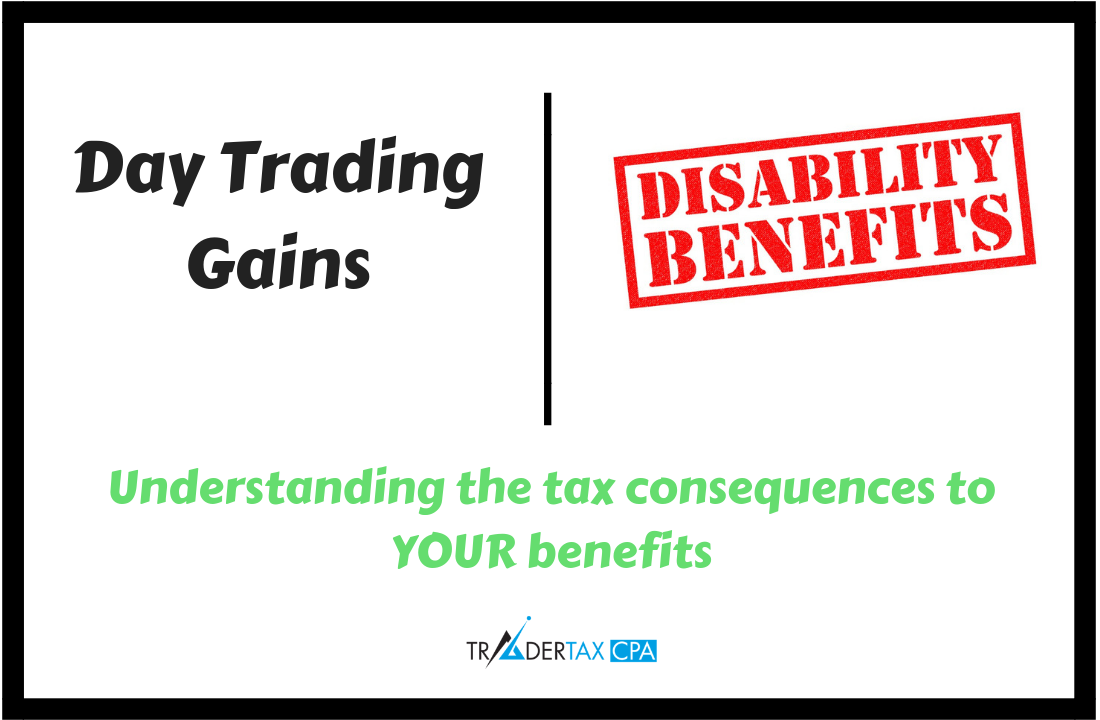Being a day trader requires lots of discipline and continuous studying to be truly successful. It is the perfect career path for someone with a sharp mind and persistent attitude. We serve clients past and present that ask us questions around day trading income and how it could potentially interfere with Social Security Benefits.
Here is what you need to know
When the social security administration grants you SSI/SSDI benefits you are limited in the amount of earned income you can make through work because if you earn an income you are not considered “disabled”.
In general, the Social Security Administration (SSA) sets a limit on the amount of money one can earn through work when receiving SSDI benefits because if you can earn an income, you are not considered disabled. The good news is trading income is not considered “earned income”.
Under the regulations, a disabled (non-blind) person applying for or receiving SSDI cannot earn more than $1,170 (2017) and $1,180 (2018) per month by working.
The SSDI program does not put a limit on the amount of assets or unearned income one can have (or income that a spouse may earn), unlike the low-income disability program, Supplemental Security Income (SSI).
A person collecting SSDI can have any amount of income from investments, interest, or a spouse’s income.
With that said, the SSA has three tests they use to determine if a self-employed person is engaging in “Substantial Gainful Activity” (SGA), which would bar you from receiving SSDI benefits:
Test One: Significant Services and Substantial Income
The individual’s work activity is SGA if he or she renders services that are significant to the operation of the business, and if he or she receives from it a substantial income; or
Test Two: Comparability of Work Activity
The individual’s work activity is SGA if, in terms of all relevant factors such as hours, skills, energy output, efficiency, duties, and responsibilities, it is comparable to that of unimpaired individuals in the same community engaged in the same or similar businesses as their means of livelihood; or
Test Three: Worth of Work Activity
The individual’s work activity is SGA if, although not comparable to that of unimpaired individuals, it is, nevertheless, clearly worth more than the amount shown in the SGA Earnings Guidelines when considered in terms of its effect on the business, or when compared to the salary an owner would pay to an employee for such duties in that business setting.
Real World Application to Trading
If you are drawing Social Security retirement benefits, you are free to work and earn money, or invest your savings in the stock market. Social Security places no restriction on the amount of money you can earn.
Social Security Disability
Income from investments is “unearned” and not counted; applicants can freely invest their savings in stocks, earn dividends and realize capital gains (or losses). Personal resources such as cash and stocks do not affect eligibility. Because traders in securities do not create earned income this is a perfect match for day trading.
SSI Eligibility
The Supplemental Security Income program is means-tested (see above) — Social Security limits the income and the resources of SSI beneficiaries. The federal benefit rate determines the monthly income ceiling which is $1,420 in 2018.
Stock investments count as resources, which also include savings accounts, pension plans and other assets such as property. The resource limit is $2,000 for singles, and $3,000 for married couples.
If at any time your “countable” resources (including stock investments) exceed the limit, you will no longer be eligible for SSI. If you participate in active trading, you should proceed with caution if you plan on keeping your SSI benefits.
If you’ve been accepted into the SSI program, Social Security requires you to report if your stocks, along with other resources, exceed the program limits. Your benefits immediately stop. If the agency makes an over payment due to excess resources, it will ask for repayment within 30 days. If you are unable to return the over payment, Social Security will propose withholding part of your income until the repayment is complete.
Questions? Feel free to reach out!

